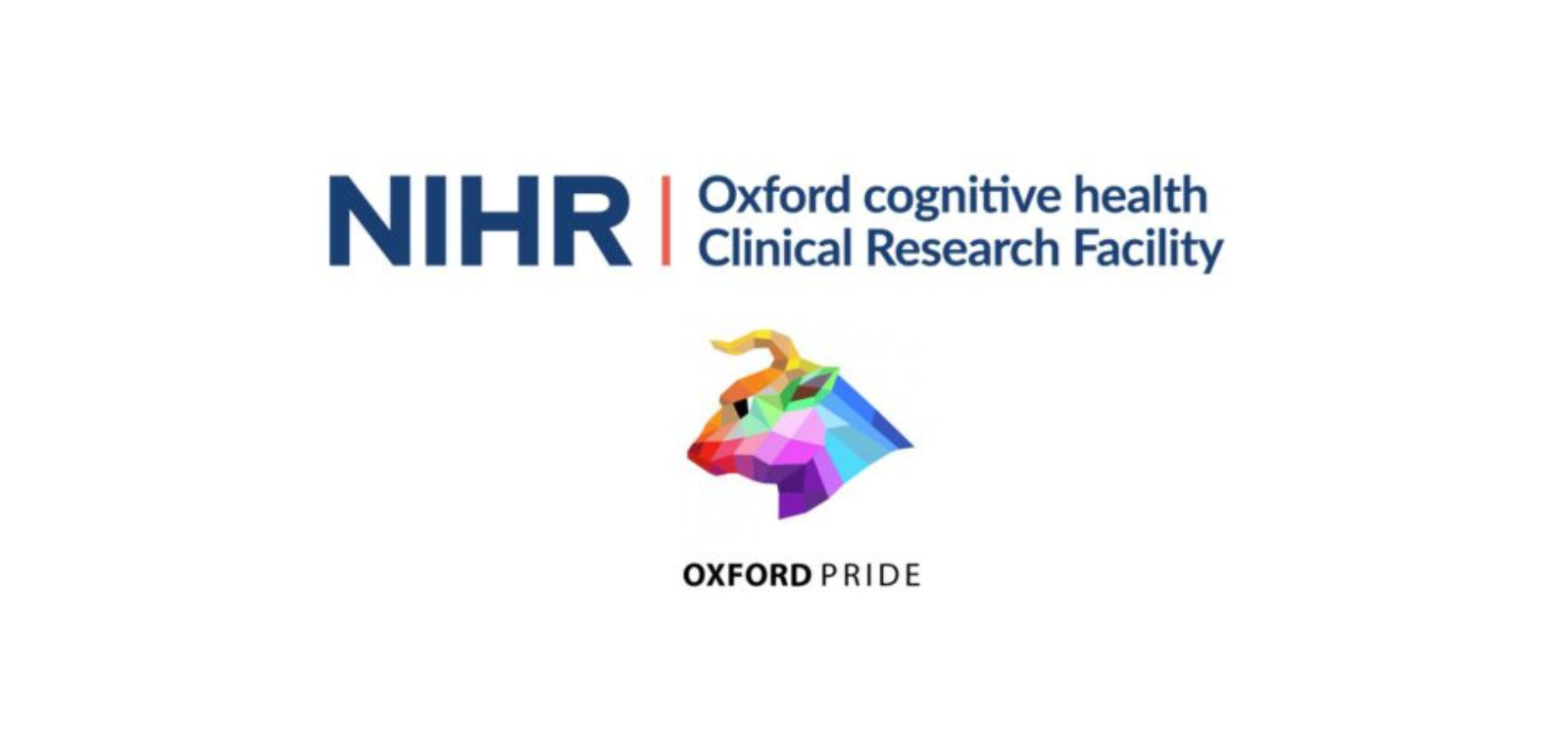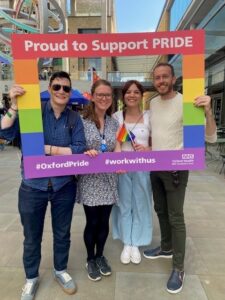
Why is diversity and inclusion important in research?
The role of research in improving health outcomes is widely acknowledged.
A lack of inclusivity in research can result in health inequalities, as suitable treatments are identified for some communities and not for others.
Therefore, it is imperative that researchers strive for diversity and representation within groups of research participants, staff and advisors.
Research practices must be accessible, inclusive, non-tokenistic and incorporate advice from “under-represented” communities, such as the LGBTQIA+ community.
What is Pride and why did we attend?
Oxford Pride is an important event celebrating the LGBTQIA+ community and brings people together for an annual parade through the city centre on Pride Day.
This year’s event celebrated its 20th anniversary and was attended by over 10,000 people with 2,500 on the parade itself.
Research staff at Oxford Health’s Clinical Research Facility (CRF) requested a stall at Oxford Pride 2023 with the aim of showing support for the LGBTQIA+ community and raising awareness of the LGBTQIA+ community among research staff. Representation at the event also presented an opportunity to identify ways to increase inclusivity within research practice through meaningful engagement with this community.
 What did we do?
What did we do?
The stall was located in Oxford Castle Quarters and staffed on the day by colleagues from the CRF, the research delivery teams, and the NIHR Oxford Health Biomedical Research Centre (BRC). Staff provided information to visitors about a variety of current research and how to get involved. Engagement and interaction were supported by giving out flags, pens, balloons, stickers, and lanyards. There was also a board for people to write on, asking “How can we make research more inclusive for you?” – visitors could stick post-its on the board throughout the day with comments and suggestions.
What have we learnt?
Wendy Hurst (CRF staff member), who was instrumental in organising the research stall, said “This year’s pride was important in reaching out and engaging with underrepresented groups. The day was a great celebration filled with colour and pride.” Staff running the stall commented on the amount that they learnt about the LGBTQIA+ community through attending this event and the level of interest that the CRF stall attracted.
Visitors to the stall made numerous comments and suggestions on the post-it board including:
- The importance of increasing diversity in research populations and having inclusive policies
- The dangers of excluding people from research based on protected characteristics.
- Considerations for increasing accessibility and inclusivity of research, e.g., making it easier for people without cars to travel to appointments, making the site visually impaired accessible and seeking advice from people with lived experience about questionnaires.
- Areas for staff training, e.g., increasing awareness of intersex, women’s pain, and pronoun use, and not asking for information that isn’t completely necessary.
- Suggested ways of connecting with the LGBTQIA+ community, e.g., via events and social media such as Tik Tok and Facebook polls
- Research priorities, e.g., improving and speeding up diagnosis of mental and cognitive health difficulties, and cancer research looking beyond sex or gender-binary studies.
- Areas for consideration within clinical teams, e.g., improving waiting times and enabling this community to donate blood.
We will work towards addressing these suggestions within our practice.

